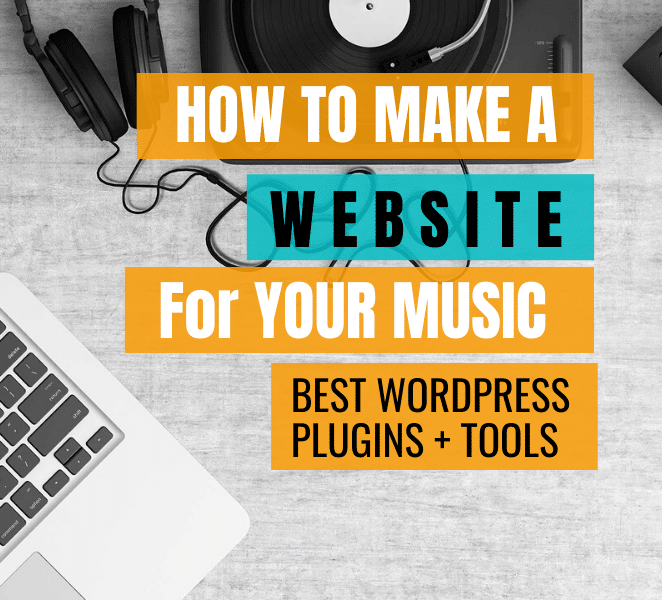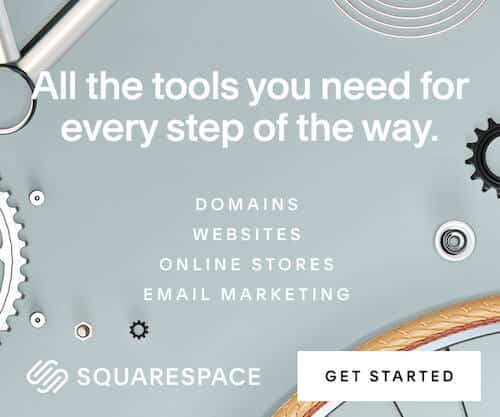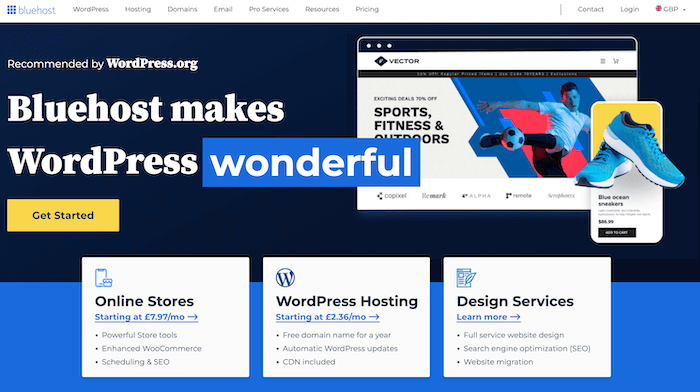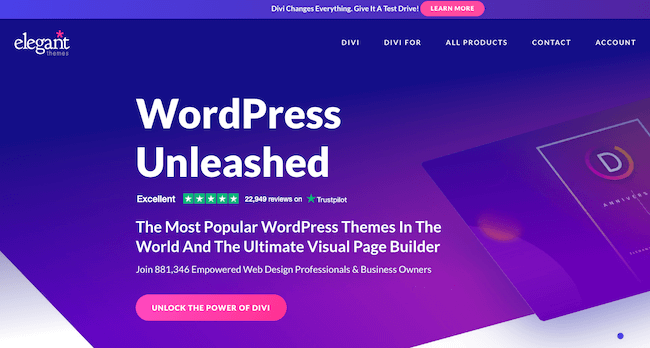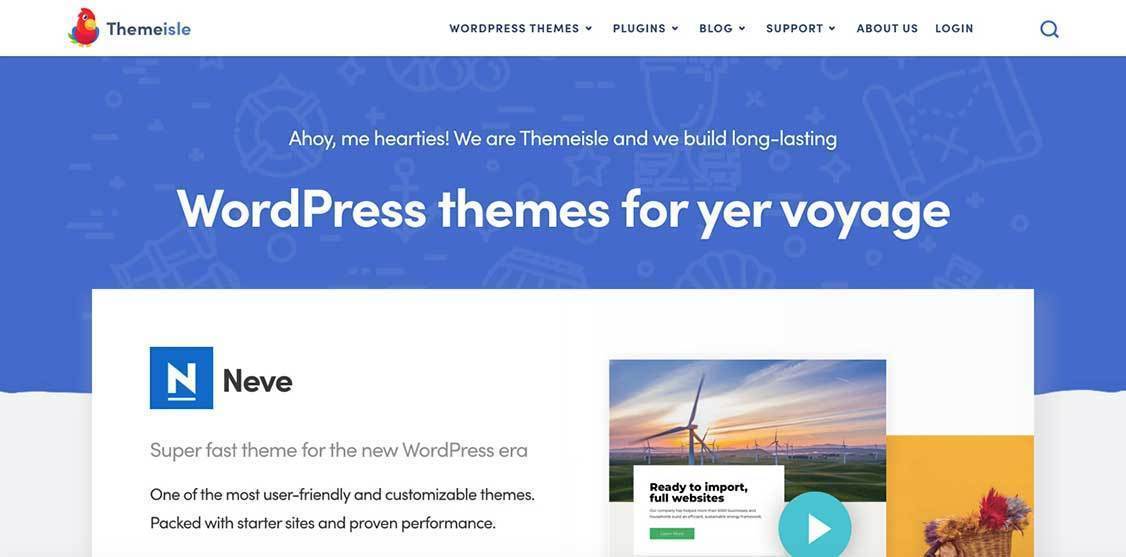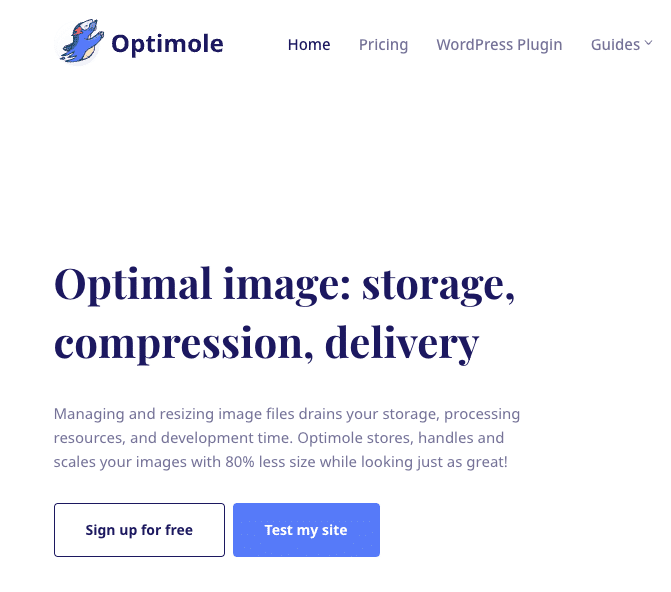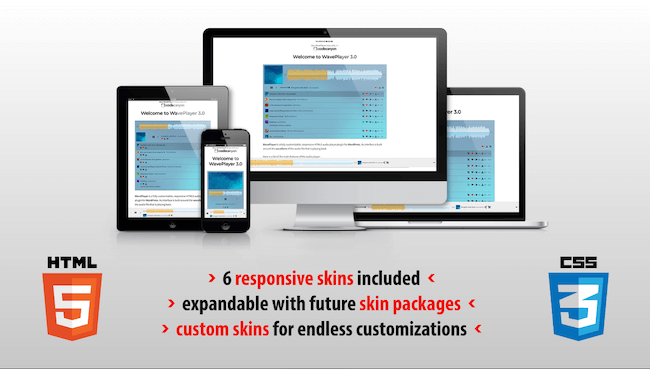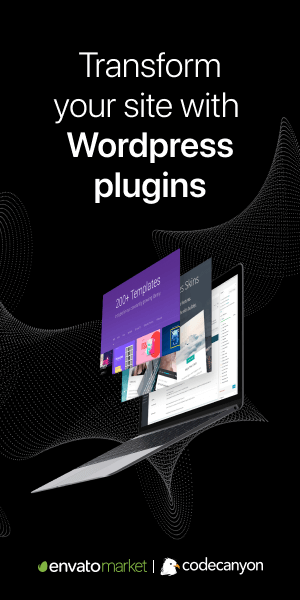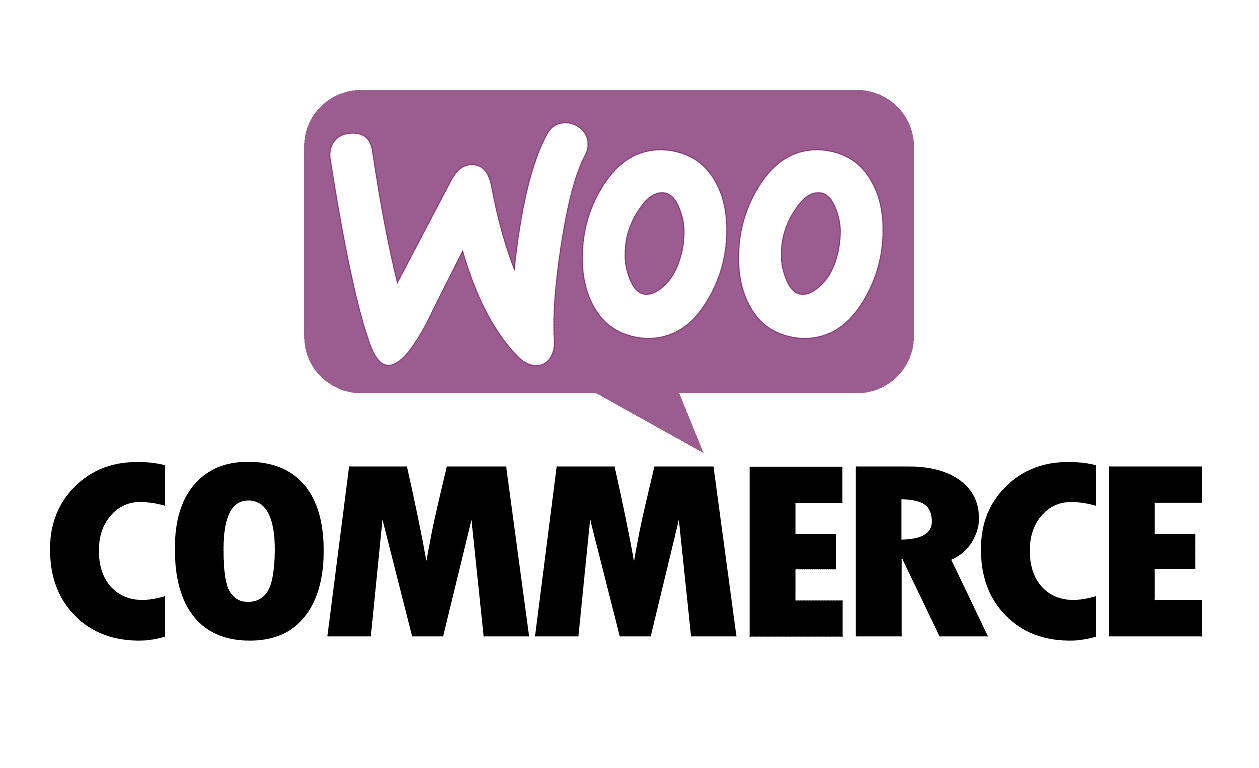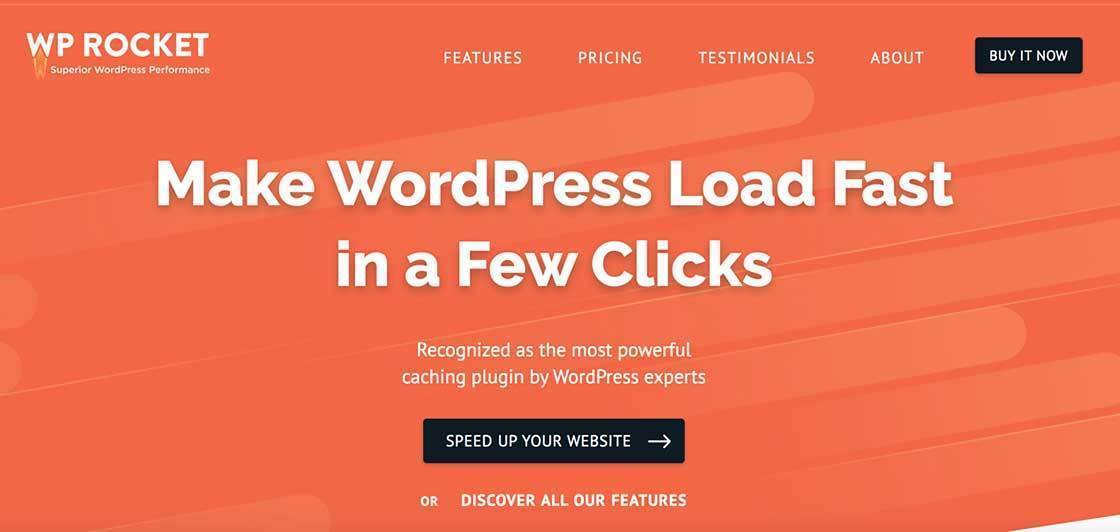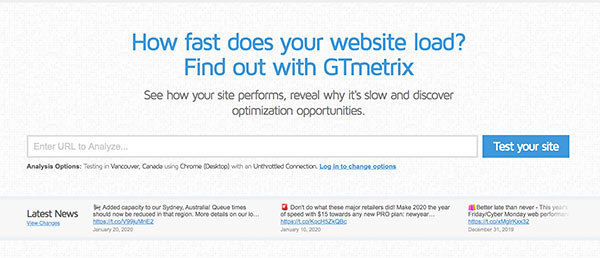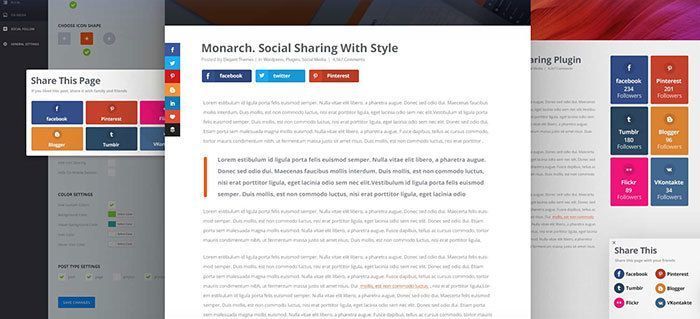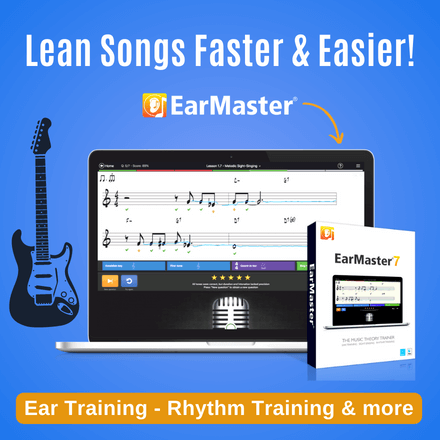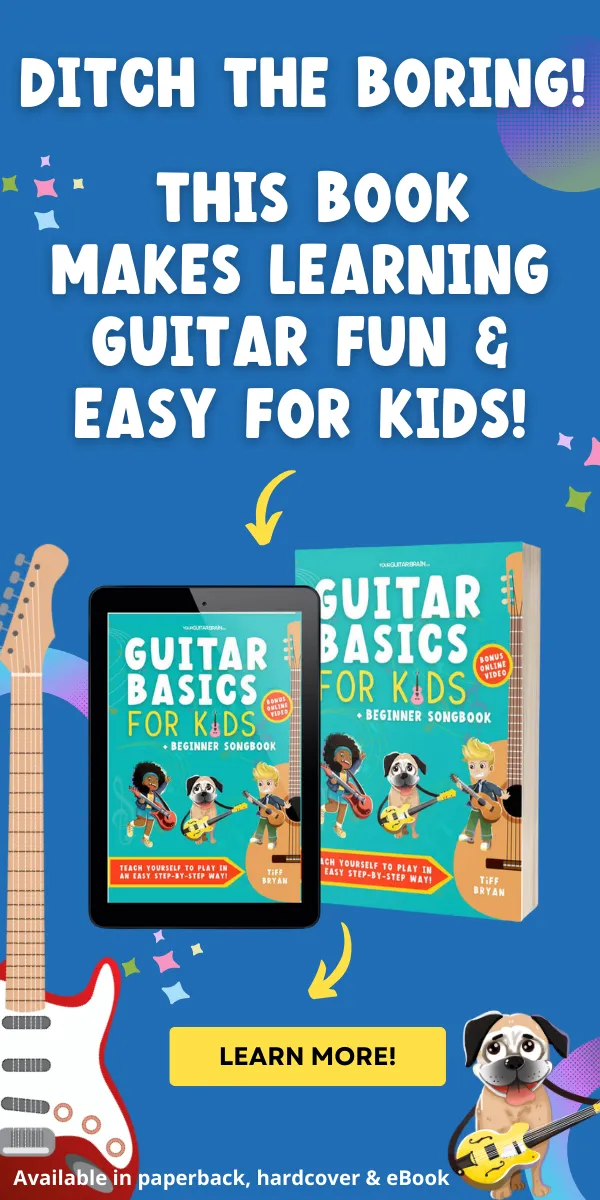From bands to music producers, it’s essential you have your own website to showcase your music. We show you the best plugins & online tools that make it easy & fast to build your own site.
If you’re a musician or producer looking to create a website for your music (or revamp your tired old site), we’ve found some of the best WordPress plugins and tools to make it painless and easy.
We have included both free and pro (paid) plugins that have been tried, tested, and trusted by many users today.
Why musicians and music producers need their own website
Whether you’re an aspiring amateur, local gigger, or full-blown professional, I don’t need to tell you; having a website to showcase and promote your material to both music industry peeps and fans is critical if you want to get anywhere.
Not having a website means you might just be missing out on:
- Gig and job opportunities
- Promo and press prospects
- Acquiring more, & engaging with existing fans
- Making money from selling your music on your self-controlled site
10 Must-have elements your music website should have
Wondering what to put on your music website? Well, we’ve got the lowdown for you. Check out the 10 must-have elements that’ll make your website rock:
- An online shop – sell your music and merch, giving you more control and higher royalties. Pretty sweet
- Audio player – for your audience to listen to your music. Some audio players even direct people to your product page, where they can easily purchase your tracks on the spot
- Event calendar – provide information about upcoming events and gigs
- Photo gallery – show off your band photo shoots, share social media uploads and display album artwork
- Videos – attract attention by showing official and unofficial footage of you at work and play
- Biography section – where your website visitors can learn more about the talent behind the music – you
- Contact form – for fans and music industry people to contact you directly
- Mailing list– keep fans engaged and informed, boosting show attendance and music sales
- Vlog or blog – connect with visitors by posting daily or weekly vlogs. From behind the scenes at the recording studio to a day in your life, your audience will become super-fans in no time
- Links to your social media profiles – keep fans engaged and create buzz around your music by linking to your social media platforms
Table of Contents
Q. Should I use a hosting company or a website builder?
So you’re ready to make your website. Congratulations! But before you get started, you need to decide whether you want to use website hosting or a website builder platform.
You can’t get away from seeing adverts for website-building platforms, and you might be thinking, why not use one of these to make life easier? It’s a fair point; after all, there are tons of ready-to-go templates on website builders.
There’s a good reason why countless individuals turn to platforms like WordPress when building their websites. It’s a breeze to navigate and tailor to your liking, ultimately delivering a website that’s truly one-of-a-kind.
Best of both worlds
If the idea of building your own website seems intimidating, don’t worry. Nowadays, it’s surprisingly simple. Thanks to drag-and-drop page builders offered by web hosting companies and theme providers, you can create a website with ease.
To learn more about the pros and cons of using a hosting company vs. a website builder, be sure to check out our article on the topic.
Q. What are the benefits of making my own website?
Let’s summarize the main benefits of creating your own website that we’ve covered so far.
- You have 100% control of your content
- Your website will look unique
- Building your own website is now easy!
Thanks to web-hosting solutions such as Bluehost and GreenGeeks, you can opt for full monty package, such as your domain name + hosting + easy one-click WordPress installation.
6 Steps to Create a Website
For every website in the land, there are six defined stages of creation. This article is designed to take you by the hand and walk you through each step so you can get your music website up and running fast.
Let’s take a look at the steps:
- Choose your website (aka domain) name and web hosting
- Choose your website platform (WordPress)
- Install a beautiful-looking theme
- Install plugins to configure & tweak your website for best performance
- Create blog posts & pages
- Promote on social media
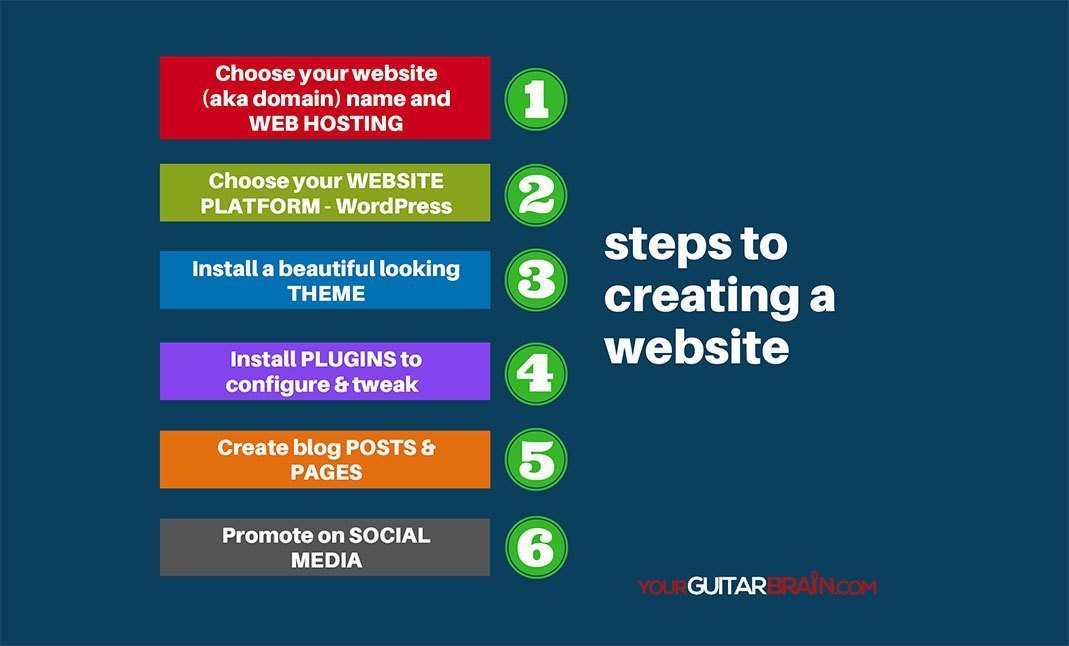
Step 1. Choose your domain name and hosting
This first step is the exciting bit. You’re about to get your website out of your head and onto the screen.
When creating a website, there are a couple of things you should focus on getting first. They are:
1) Domain name
Your website domain name is your website’s address on the internet. It’s what people type into their browsers to visit your website. A domain name looks something like this: www.myfunkyrockriffs.com.
You can buy a domain name from a domain registrar, such as Namecheap or Bluehost. Namecheap is a great place to get a domain name. They offer over 1,500 different extensions, which is more than most of their competitors and budget-friendly rates.
For instance, you can nab a .com domain for a mere $13.98/year, a .net domain for just $12.98/year, or a .co domain for an astonishingly low $2.48/year. Visit Namecheap here.
Many hosting companies offer a free domain name with their hosting plans. This is a great way to save money, especially if you’re just starting out.
Keep in mind that most free domain names are free for the initial year, and you’ll be required to pay an annual fee to maintain them after that. Be sure you read the details of any hosting plan you’re considering.
2) Web hosting
Your site content needs a home to live, and this, in a nutshell, is what hosting is. You pay a hosting company a small fee monthly or yearly, depending on the plan you choose, to store it.
Because your music material is precious, you need to go with a trusted, reputable web host company that will keep your information private and secure.
Out of all the web hosting providers we’ve researched and used, there are three that we recommend based on value for money, reliability and ease of use.
These are GreenGeeks, Cloudways and Bluehost.
Let’s have a look at these hosting providers in more detail before moving on to step two.
- 300% green energy match
- Free SSL certificate included
- SS RAID-10 storage for fast page loadss
- Expert 24/7 support
As a musician or a producer, you know how important it is to have a website that showcases your talent and passion. That’s why you need a web hosting provider that can deliver fast, secure, and eco-friendly web hosting services for your music website.
Look no further than GreenGeeks, the world’s leading green web hosting provider. With GreenGeeks, you can choose from various web hosting plans that fit your budget and requirements.
You can use WordPress hosting, WooCommerce hosting, or VPS hosting to create your website with ease. You can also enjoy features like a free SSL certificate, free domain name, free nightly backup, free CDN, managed WordPress, built-in caching, and unlimited databases.
Hosting your website on GreenGeeks is a great way to help the environment. GreenGeeks is a web hosting company that uses 300% green energy. This means that for every kilowatt of electricity, they use from the power grid, they return three kilowatts in the form of wind and solar energy.
By hosting your website on GreenGeeks, you can help reduce your carbon footprint and make a positive impact on the environment. Lush.
2. Cloudways Web Hosting

- Fast managed cloud-based hosting
- 99.99% uptime guarantee
- 1-Click WordPress install
- 24/7/365 live chat support
Cloudways is a great web hosting provider for music websites. They offer managed cloud hosting, so you don’t have to worry about the technical stuff.
We use Cloudways here on our website, yourguitarbrain.com, so we’ll try not to get too gushy, but in our experience, it’s a great web hosting provider with attentive customer service.
You can choose from five different cloud providers, such as DigitalOcean and Vultr, and their plans start from a cheap $11 a month and include many features and services that make your website fast, secure, and reliable.
You can test Cloudways service with a 3-day free trial that doesn’t require a credit card, a free SSL certificate, a free domain name, free nightly backup, free CDN, managed WordPress, and unlimited databases. Now you’re starting to see why we use Cloudways on our website!
Paid | Get hosting at Cloudways.com
- Free domain for 1st year
- Free SSL certificate included
- 1-Click WordPress install
- 24/7 support
Bluehost makes it really simple for you to start the ball rolling and buy your hosting. Not only that, they offer a free domain name and free SSL certificate (vital to make your site secure and appear legit to site visitors).
You can effortlessly install WordPress with just one click on Bluehost. After you have chosen your preferred plan and a memorable domain name, Bluehost will take care of the installation process for you. It’s as simple as pie.
Sign up here and get shared hosting for as low as $2.95/month. Prices vary by plan length (12, 24, or 36 months).
If you want more for your buck, go for the Plus or Choice Plus plans, as for a few dollars more a month, you get more benefits, such as unlimited website hosting and unlimited SSD storage. Perfect if you’re planning on having large music files on your site.
Paid | Get hosting at Bluehost.com
Step 2. Install your website platform (WordPress)
So you’ve now purchased your domain name and hosting. The next step is to install WordPress.
WordPress is a content management system (CMS) that makes it easy to create and manage your website content. It’s the most popular CMS in the world, powering over 40% of the internet’s content.
There are two versions of WordPress: WordPress.org and WordPress.com. WordPress.org is the self-hosted version, which means you’ll need to purchase hosting and install WordPress yourself. WordPress.com is the hosted version, which means you don’t need to worry about hosting or installation.
If you want to make money from your website, you’ll need to use WordPress.org. This is because WordPress.com has restrictions on commercial use.
Most hosting providers offer a 1-click install feature that makes it easy to install WordPress. Once WordPress is installed, you can start creating and managing your website content.
Step 3. Install a theme
Now, the fun begins! Now you’re primed and ready to go within WordPress; you’re about to make the important decision of what theme you’ll use on your site.
Don’t mess this up!
And because there’s a head-spinning amount of different themes to choose from (literally thousands), including lots for free and paid, our advice is to future-proof and go for a paid theme.
Let’s expand on this further.
Q. Should I use a free WordPress theme or a paid one?
When it comes to choosing a WordPress theme, there are two main options: free and paid. Free themes are a great way to save money, but they can be a bit of a gamble.
I learned this the hard way. When I first started dabbling with websites, I decided to use a free WordPress theme to save money.
I quickly regretted my decision.
In the end, I had to shell out some extra cash to grab a premium WordPress theme and let me tell you, it was totally worth it. So, without further ado, here are the:
Top 5 reasons why you should choose a paid WordPress theme over a free theme:
- Free themes, because they’re, well, free, are often plagued with problems because they’re badly coded. Want to insert a reliable music player on your website? Go for it, but keep your fingers crossed it works properly. Poor coding can lead to plugin incompatibilities, you see. Talking of which, see point number two.
- Free themes are often not updated once they’re created, which is bad news. WordPress updates frequently, and for plugins and themes to remain compatible in the future, they need to be maintained and updated. You get this piece of mind with paid premium themes.
- When it comes to free themes, it’s common to receive little or no customer support. On the other hand, premium theme developers offer service and support in case you have any questions or issues.
- Free themes have limited and basic features. This reason alone was why I stopped using a free theme when I started making websites. I tried at least 5 different free themes and got frustrated with the lack of functionality. What a waste of time I won’t get back. But hey, every day is a school day, right?
- Remember when I mentioned that WordPress offers thousands of themes? Well, among the free ones, only a few are well-coded, and some of them have been downloaded over a million times. You know what that can mean; unoriginal websites. Premium themes offer you more ways to customise and personalise your site.
With that done and dusted, it’s time to check out some impressive-looking WordPress themes.
One of the most popular WordPress theme shops in the land, Elegant Themes offers an abundance of knock-out premium themes and plugins that tick the design, functionality and affordability boxes.
Their flagship theme Divi has been one of the most popular WordPress themes for years, thanks to the user-friendly integrated Divi Builder tool. From page formats to fonts and colours, this drag-and-drop builder tool helps you easily create and customize your website design.
This versatile theme has multiple variations to suit your niche. Elegant Themes has created a blog post featuring the best Divi theme layouts for musicians. Feast your eyes for some design inspiration.
Available in three different packages: the personal plan, the developer plan, and the lifetime access plan – you can choose to buy one theme or pay one price to have access to ALL of the premium themes they’ve ever created, starting from just $89.
Perfect for those of you planning on creating more than one website or if you like to keep it fresh by changing your website theme now and then. With great customer support, frequent updates, and so many theme options, you’ll be able to create the website you’ve been picturing in your head if you opt for Elegant Themes.
Free | Get Elegant Themes here
For those of us who want a beautiful-looking website but know zilch about coding, ThemeIsle is the perfect go-to. From WordPress themes to plugins, you’re sure to find the ideal tool to pimp up your website.
All of ThemeIsle’s themes are easy to set up and tweak with the help of the Live Customiser tool, and their support receives impressive customer satisfaction feedback, which is important if you have any questions down the line.
The theme Neve is perfectly suited to creating a music website with the ‘starter sites library’ where you get umpteen ready-made website templates which you can use out of the box or customise to fit your individual style.
Click here, type ‘music’ into the search box halfway down the page, and check out the latest music skins the theme offers. Who said building a website was tricky?
Expect themes with attention-grabbing features, including seamless parallax scrolling, funky animation elements and video ribbons where you can showcase your musical products to the world when you use a theme from ThemeIsle.
Paid | Get ThemeIsIe here
Step 4. Install plugins to configure & tweak
One of the first things you need to do to your new website once you’ve sorted your domain name, web hosting, and installed WordPress is to start adding important plugins.
To make your music website run the very best, you’ll need to install plugins that help you customize your new site and A) enable you to optimise and tweak your site for optimum performance, and B) make showcasing your music material, products and/or services a breeze.
Good news! WordPress has a bunch of cool plugins that you can use to make your website even better. These plugins can help your site run smoother and make it more user-friendly.
In the following step, you will learn about six essential plugins to install on your website.
1. Yoast SEO

Search Engine Optimization (SEO) is crucial for boosting your website’s visibility on Google and attracting more traffic to your music or services.
This is where the Yoast SEO plugin shines. The plugin helps you optimize your new content for the search engines, meaning your website will become more discoverable by fans and music industry folks.
Yoast SEO makes it easy to optimize your website for search engines. It helps you make your content easy to read and understand, and it also helps you choose the right words and phrases (keywords) that people are likely to use when searching for information online.
Download the free version or consider Yoast Premium. Our advice is to stick with the free version for now; it has everything your website needs to get going.
Free & Pro | Download Yoast in your WP dashboard plugins > Install new
2. Updraft Backup Plugin
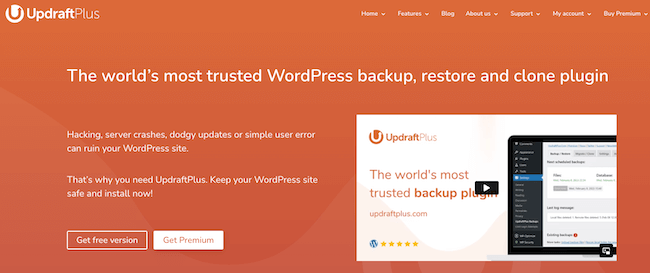
Sometimes, bad things can happen to your website, like hackers, crashes, or mistakes. You need a backup plugin that can save your website and bring it back to normal.
If you’re looking for a reliable WordPress backup solution, UpdraftPlus is a great plugin to consider. It automatically saves your entire website to popular cloud services like Dropbox, Google Drive, and email. Plus, restoring your website is simple with just one click from your WordPress dashboard.
This is great for music producers and musicians because you can save your music files, artwork, videos, and other content to the cloud and keep them safe. You can also bring them back anytime you want.
The free version of UpdraftPlus is sufficient for site backups, while the paid version has a few more bells and whistles.
Free & Pro | Download Updraft in your WP dashboard plugins > Install new
3. Jetpack
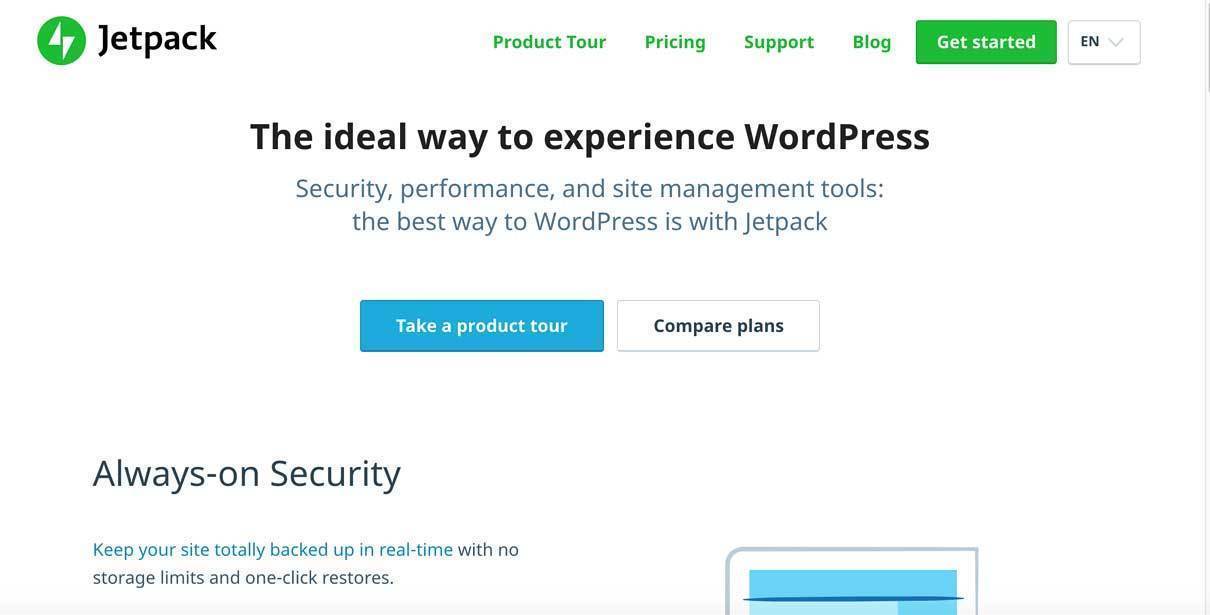
JetPack is another popular WordPress plugin. It has five million+ installations and is a multi-purpose plugin that gives you site stats, related posts, social sharing, basic security, and more.
This plugin is a great all-rounder for keeping your website visitors engaged for longer. One of its notable features is Related Posts, which suggests content related to the current post at the end of each article. It’s worth mentioning that many good themes already have this feature built-in.
Jetpack offers premium plans that add expanded backup and security features. However, our advice is to stick with the free version for a while so you can see how it positively enhances your website’s back and front end.
Free & Pro | Download Jetpack in your WP dashboard plugins > Install new
4. Optimole Image Optimiser
Images are essential for any website, especially for music websites, where you want to showcase your albums, artworks, videos, and more. However, images can also slow down your website because they take up a lot of space and bandwidth
Want to make your music website faster and more attractive? Optimole is the WordPress plugin for you. It automatically optimises your images so they load faster and use less bandwidth.
With the plugin, your images will appear sharp on every screen as it delivers the appropriate image size for each device. Optimole utilises advanced image formats to enhance quality and reduce image size. Because no one wants blurry album artwork.
Free & Pro | Get Optimole here
5. WavePlayer – WordPress Audio Player
It goes without saying a music website needs a good music player so your fans and customers can listen to your tracks. You could go for a free option, such as the noteworthy Music Player for WooCommerce, or you could go for a paid plugin that gives you more customisable options, such as WavePlayer WordPress Audio Player plugin.
This slick-looking responsive music player gives you plenty of useful tweakable features, and you can upload your music files in industry-standard formats such as MP3, m4a, and WAV.
Want to make money from your music? It’s easy with WavePlayer. It can be easily integrated with the WooCommerce plugin, where you can batch-create products from your tracks or albums. You can even direct your listener to your product pages from within the player.
As one of the best website music audio players, WavePlayer is competitively priced at around $26 and frequently goes on sale. If you want a professional-looking audio player for your music, this is an excellent choice.
Pro | Get WavePlayer WordPress Audio Player here
6. WooCommerce
WooCoomerce plugin is one of the most powerful free eCommerce plugins on the market. It has a boatload of free and premium extensions and add-ons designed to make building an online store simple.
What this means for you is selling anything from digital downloads of your music to tour merchandise is painless. This is how you add your music in WooCommerce once you’ve installed the free plugin:
Click WooCommerce > Products > Add new. Next, scroll down to Product data section > Simple data. Finally, add a Product Name, then select Virtual and Downloadable. The final exciting step is to upload your music files. Sorted.
But you’re not finished there. You need to make sure you install a payment gateway such as Paypal or Stripe, because without one, your audience can’t purchase your music products online.
You could use the basic PayPal payment option included in the plugin, but you have more options with the PayPal Express Checkout Payment Gateway for WooCommerce add-on. The plugin improves PayPal payments in WooCommerce for faster and easier checkout in just three clicks.
Other noteworthy WooCommerce extensions that tune up your music site include shopping carts and product galleries, which allow you to start promoting and selling your music pronto.
Free | Download WooCommerce in your WP dashboard plugins > Install new
7. WP-Rocket
Did you know a whopping 40% of people abandon a website that takes more than 3 seconds to load? Your website’s speed will make or break the success of your site.
After all, there’s no point in investing your time and money into creating a dope-looking website that’s so slow and laggy nobody sticks around to check it out.
And because having an efficient fast-loading site is so crucial, WP Rocket might well be one of the most important premium plugins on this list you should take a look at.
From page and browser caching, file compression, and image lazy loading to improve the load time of your pages, WP Rocket is one of the best speed-boosting caching plugins out there.
Once installed on your website, you’ll get super-fast load times that’ll help your site rank higher in search engine results and impress your visitors.
Do this quick test
The best thing you can do once you’ve started creating content on your website is to go to GTMetrix.com, pop your website address into the “Enter URL to Analyze” field, and if it shows your site takes more than 3 seconds to load, you’ve got some work to do.
Solution: Get WP Rocket, install it, and with a few clicks it will solve your site speed problems. There’s no fiddly confusing settings to worry about, and the plugin launches upon activation.
Because WP Rocket is reasonably priced, has features that free plugins lack and is straightforward to use, you’d be making the right move checking the plugin out.
Pro | Get WP-Rocket here
Step 5. Create posts & pages
Now you’ve installed a gorgeous-looking theme and added some essential plugins, the last step in the website-building process is to start creating pages and posts.
We already covered the 10 must-have elements your music website should have here.
Here are a few other important pages your website needs:
- Homepage – This is the important one. The first page your visitors will see, your homepage needs to pack some punch and establish your identity.
Think slick design with enticing elements such as your logo, navigation menus, images, calls-to-action (pointing towards your products), and social media links.
- Privacy Cookie Policy – If you’re selling products or collecting visitors’ details, such as email addresses, you need a privacy page. Here you’ll disclose what personal data you collect from your site’s visitors, how you collect it, and how you use it to make sure your site is GDPR compliant.
Luckily there’s a plugin for that. Check out how the GDPR Cookie Consent Plugin from Webtoffee.com takes care of this all for you.
- About (Biography) – This page is where you tell your website visitors a bit about you. If you work solo (producer, DJ, engineer, solo artist etc.) or if you’re in a band, you want to describe what you do and what you stand for.
Consider listing achievements and accolades, but also keep it informal and light to help people warm to you.
5 Best Content Creation Tools
Are you struggling to come up with fresh content ideas for your website? Don’t worry, there are several apps and plugins available that can help you create engaging content to keep your visitors interested.
Here are five of the best tools you can use to generate content for your blog:
1. Canva
Canva is a fantastic online graphic design resource that helps you to create stunning visuals for your website. From your post header images to your next social media post image, think of Canva being like Photoshop, only it’s stupid-easy to use, and did we mention it’s free?
There are paid upgrade options to consider; however, for all your website image creation needs, the free plan to start will do a lot of what you want. Check Canva out here.
2. Feedzy RSS Feeds
The Feedzy plugin helps you pull in and aggregate content from your favourite blogs and sites, such as YouTube.
What is an RSS feed? RSS stands for Really Simple Syndication, and it’s a standard sharing technology that helps you receive up-to-date content from your favourite websites. These could be blogs, websites, news channels and social media platforms.
Feedzy therefore allows you to quickly collect RSS feeds and display them on your posts or pages for your visitors to read. Easy to install, within a few clicks you can display and even auto-post music relevant content on your site. Feedzy is a premium plugin and you can check it out here.
3. Dropbox
We’re probably preaching to the converted here – Dropbox is a great tool that helps you move around your large files. Because as a musician, producer or dj you know how big audio files such as .wavs can build up, Dropbox helps you manage all your content with little friction and has a few plans to choose from.
The free plan gives up to 2GB of storage, and because that’ll quickly get eaten up with your music downloads, consider the inexpensive Dropbox Plus plan. Check out Dropbox here.
4. ChatGPT
Creating content for your website can be a real hassle, but there are some nifty tools out there, like ChatGPT, that can make your life easier. These tools help you come up with engaging content to keep your visitors hooked. Let’s take a quick look:
- What is it: ChatGPT is an AI content creation tool that uses fancy tech to whip up top-notch written content. Whether you need blog posts, product descriptions, or catchy social media captions, ChatGPT can do it all.
- How easy is it to use: It’s a piece of cake! ChatGPT’s user-friendly interface is a breeze, so whether you’re a pro or just starting out, you’ll get the hang of it in no time.
- What can it do: ChatGPT is like a Swiss Army knife for content. It can help you write blog articles, create catchy headlines, come up with email copy, and even provide answers for chatbots or virtual assistants.
- How much does it cost: Unlike some pricey tools, ChatGPT is free to use with affordable subscription upgrades, making quality content accessible to people on all budgets.
With ChatGPT, content creation becomes less daunting, keeping your website fresh and your audience engaged.
5. Modal Survey – WordPress Poll, Survey & Quiz
People love sharing their opinions themselves, don’t they? What better way to interact with your audience than by hosting a poll or survey on your website?
From asking them which of your EP tracks should go on the final album to finding out what type of audio clips they’re looking to purchase.
What a great way to increase your chance of turning your website visitor into a buyer of your music. Check out the Modal Survey plugin over at code canyon here.
Step 6. Promote on social media
You’ve heard the saying, “build it, and they’ll come”, right?
It’s not true.
You see, no matter how pimped up and slick your website looks, there are thousands of new websites popping up every day. How to cut through all that noise, you may be wondering? Get promoting.
There are many strategies to promote your website; we’ll focus on one of the best tried and tested methods: building a social media presence.
Here are some of the best tools and plugins that’ll help you spread the word on social media fast and with minimum fuss.
1. Social Media Share Buttons & Social Sharing Icons
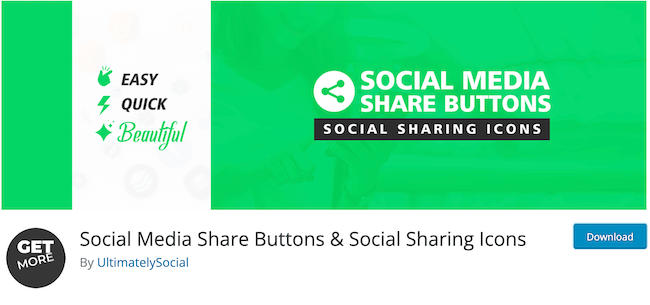
This simple-to-use social media plugin lets you add share icons from over 200 social media platforms, including the usual suspects: YouTube, Instagram, Facebook, Twitter, and Pinterest.
The plugin offers 16 design options and allows customization of social media icons to display various functions, including share counts. It blends seamlessly into your website without being intrusive.
Free & Pro | Get Social Media Share Buttons here
2. Monarch Social Sharing
Monarch makes it easy for you to promote your content better with 35+ social platforms that can displayed in five locations on your website, including on images and video.
You can easily add beautifully designed social media share and follow buttons to your website with Monarch, a premium plugin that comes with 24/7 customer support.
Plus, when you purchase Monarch, you also gain full access to Elegant Themes’ impressive collection of WordPress themes and plugins, which includes over 100 website packs and the popular Divi theme.
Summing it Up
Hey presto – you’ve just been knowledge bombed and have all the ammo you need to get creating your music website.
And because your music website will continue to grow and evolve as you do, the tools and plugins in this guide will have your back and make the process cut and dried.
Now, get doing what you do best – creating.

